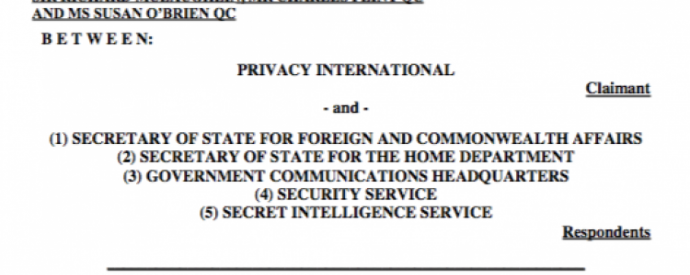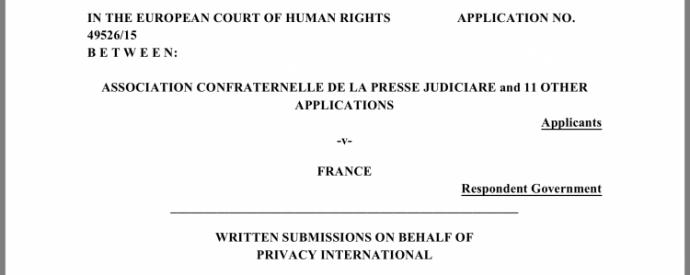Long Reads
Introduction Why We Are So Concerned about Government Hacking for Surveillance Scope of Our Safeguards 1. Legality 2. Security and Integrity of Systems 3. Necessity and Proportionality 4. Judicial Authorisation 5. Integrity of information 6. Notification 7. Destruction and Return of Data 8
This piece was originally published in Just Security in November 2017. The upcoming expiration of Section 702 of the Foreign Intelligence Surveillance Act (FISA) has launched a fresh wave of debate on how the statute’s “ backdoor search loophole” allows the U.S. government to access Americans’
Photo Credit: AU UN IST / Tobin Jones El 25 de septiembre 2017, el presidente de Paraguay objetó la totalidad de una propuesta de Ley denominada “ que regula la activación del servicio de telefonía móvil”, disponiendo la creación de un registro de huellas dactilares de todos los usuarios de
Government hacking is unlike any other form of existing surveillance technique. Hacking is an attempt to understand a system better than it understands itself, and then nudging it to do what the hacker wants. Fundamentally speaking, hacking is therefore about causing technologies to act in a manner
On 8 September 2017, the Investigatory Powers Tribunal decided to refer questions to the Court of Justice of the European Union (‘CJEU’) concerning the collection of bulk communications data (‘BCD’) by the Security Intelligence Agencies from mobile network operators. The BCD regime was initially
European Court of Human Rights Intervention On 15 September 2017, Privacy International filed an intervention to the European Court of Human Rights in Association Confraternelle de la Presse Judiciare and 11 Other Applications v. France. This case challenges various surveillance powers authorised
This piece was originally published in Just Security in August 2017 We recently published an analysis in Lawfare of the United Kingdom’s surveillance framework as it relates to the proposed U.S.-U.K. agreement for cross-border law enforcement data requests. Implementing the U.S.-U.K. agreement is
This piece was originally published in Lawfare in July 2017. The United Kingdom has been a key partner in the United States’ efforts to reform the process that law enforcement officials use to make cross-border requests for data. These efforts address both foreign governments’ requests for data
6 July 2017 Full briefing: UK-US Intelligence Sharing Arrangements Urgent transparency is needed regarding the UK’s intelligence sharing arrangements with the United States, which allows UK and US agencies to share, by default, any raw intelligence and methods and techniques related to the







